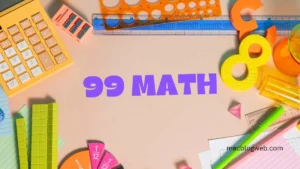The 72 Sold lawsuit has become a hot topic of discussion, not just in the real estate community but also among homeowners and prospective home sellers. The legal proceedings focus on allegations of deceptive marketing practices and misleading promises made by the company. This case raises fundamental questions about whether the methods used by 72 Sold comply with industry regulations and standards. Let’s delve deeper into what 72 Sold is, why it gained popularity, and what the lawsuit entails.
What is 72 Sold?
Before discussing the lawsuit, it is crucial to understand what 72 Sold is and why it has garnered significant attention in the real estate sector. 72 Sold is a home-selling program that markets itself as a revolutionary way to sell homes quickly and efficiently. The primary selling point of the service is that it claims to help homeowners sell their properties in as little as 72 hours, hence the name 72 Sold. According to 72 Sold reviews, the program promises a higher sale price by generating competitive offers within a short period, which is why it appeals to many sellers who want to avoid the traditional, often lengthy real estate process.
The Popularity of 72 Sold
The concept of 72 Sold is attractive to many sellers, particularly those in urgent need of cash or those who wish to avoid the hassle of staging, open houses, and prolonged negotiations. The company’s promise of a swift and hassle-free sale process has earned it a fair amount of attention and numerous 72 Sold reviews across various platforms like Reddit, Yelp, Consumer Reports, and Google Reviews. These reviews highlight mixed experiences, with some sellers praising the quick sales process and others raising concerns about the promised price versus the final sale price.
Controversies Leading to the 72 Sold Lawsuit
The 72 Sold lawsuit arose from allegations that the company engaged in deceptive marketing practices. Some clients have claimed that the promises made by 72 Sold did not match their actual experience. Specifically, complaints have been filed suggesting that the company’s marketing tactics mislead homeowners into believing they would receive a higher sale price than possible. This discrepancy has sparked debates on forums like Reddit, where users have shared their experiences and expressed skepticism about the program’s claims.
Moreover, several 72 Sold complaints have emerged on platforms like Consumer Reports and Yelp, accusing the company of not delivering on its promises. These complaints often mention issues like unexpected fees, lower-than-expected offers, and a lack of transparency regarding the home-selling process. The culmination of these complaints has led to the current legal battle.
Key Allegations in the 72 Sold Lawsuit
The 72 Sold lawsuit centers around several critical allegations:
- Deceptive Marketing Practices: At the heart of the lawsuit are claims that 72 Sold engaged in misleading marketing practices. According to some homeowners, the company’s advertisements suggested that their homes would sell for more than market value due to the competitive bidding process. However, many sellers reported receiving offers significantly below their expectations, leading them to feel deceived.
- Misleading Promises About Home Sale Prices: Another major point in the lawsuit is the accusation that 72 Sold misled customers about the potential sale price of their homes. The plaintiffs argue that the company promised higher sale prices than what was realistically achievable. Several 72 Sold reviews on Houzeo and other platforms corroborate this claim, mentioning that the final sale price was often much lower than initially suggested.
- Non-Disclosure of Fees and Costs: Many 72 Sold complaints highlight a lack of transparency regarding fees and costs associated with the home-selling process. Some homeowners allege that they were not adequately informed about the various fees and costs until later in the process, which caused frustration and dissatisfaction. This non-disclosure forms a significant part of the allegations in the 72 Sold lawsuit.
- Violation of Real Estate Regulations: The lawsuit also questions whether 72 Sold’s business practices comply with real estate industry regulations and standards. Several claims have been made that the company operates in a manner that does not align with state and federal laws governing real estate transactions. This aspect of the case could have broader implications for the company’s future operations and the real estate sector.
Customer Experiences and 72 Sold Reviews
When examining the 72 Sold lawsuit, it’s essential to consider customer experiences shared through various online platforms. 72 Sold reviews on Reddit, Yelp, and Google Reviews provide a mixed bag of opinions. While some customers have praised the company for delivering on its promise of a quick sale, others have criticized it for falling short in terms of sale price and transparency.
- 72 Sold Reviews on Reddit: On Reddit, discussions around 72 Sold have been lively, with many users sharing their personal experiences. Some users appreciate the speed and convenience of the service, while others have voiced concerns about the company’s aggressive marketing tactics and the final sale prices offered. The consensus seems to be that while 72 Sold may be suitable for sellers in urgent need of a quick sale, it might not be the best option for those looking to maximize their home’s value.
- 72 Sold Reviews on Yelp: Yelp reviews of 72 Sold reveal a similar pattern of mixed feedback. Positive reviews often mention the convenience and ease of the process, while negative reviews focus on unmet expectations regarding the sale price and hidden fees. Several reviewers have stated that the final offer they received was substantially lower than the initial estimates provided by the company.
- 72 Sold Google Reviews: On Google Reviews, the feedback about 72 Sold is equally divided. Some reviewers commend the company for its customer service and quick turnaround, while others express disappointment over discrepancies between advertised and actual sale prices. These mixed reviews reflect a broader uncertainty about the company’s practices and whether they align with customer expectations.
- 72 Sold Reviews on Houzeo: Houzeo reviews also offer insight into the experiences of homeowners who have used the 72 Sold service. While some reviews praise the company for its streamlined approach, others criticize it for not disclosing all the terms and conditions upfront. This lack of transparency is a recurring theme in many complaints, reinforcing the allegations made in the 72 Sold lawsuit.
Implications of the 72 Sold Lawsuit
The 72 Sold lawsuit has several potential implications for both the company and the broader real estate industry:
- Impact on 72 Sold’s Business Model: If the lawsuit finds that 72 Sold engaged in deceptive marketing practices or violated real estate regulations, the company may be required to change its business model. This could include altering its advertising strategies, improving transparency with customers, or even facing financial penalties. Such outcomes could significantly impact the company’s reputation and operations.
- Increased Scrutiny on Real Estate Marketing Practices: The lawsuit could also prompt increased scrutiny of marketing practices within the real estate sector. Other companies offering quick-sale services might face similar legal challenges if their advertising and sales practices are deemed misleading. This could lead to tighter regulations and greater accountability for real estate businesses.
- Consumer Awareness and Caution: The legal proceedings have already raised awareness among homeowners and prospective sellers about the potential risks associated with quick-sale programs like 72 Sold. As more details about the lawsuit become public, consumers may become more cautious when choosing real estate services, leading to a demand for greater transparency and honesty from companies in this space.
Future of 72 Sold Amid Legal Challenges
The future of 72 Sold remains uncertain amid the ongoing lawsuit. While the company continues to operate and attract new clients, the legal case has undoubtedly cast a shadow over its business model. Depending on the lawsuit’s outcome, 72 Sold could be forced to make significant changes to how it markets and conducts its services.
In response to the lawsuit, 72 Sold has maintained that it operates within the bounds of the law and that its marketing practices are fair and transparent. The company argues that it provides a valuable service to homeowners looking to sell quickly and that the negative reviews are not representative of the majority of its customers’ experiences. However, this stance will be thoroughly examined as the legal proceedings continue.
Conclusion
The 72 Sold lawsuit represents a significant moment in the real estate industry, highlighting the importance of transparency, honesty, and fairness in marketing and sales practices. While the case is still unfolding, it serves as a cautionary tale for both real estate companies and consumers. For companies like 72 Sold, the lawsuit underscores the need for clear communication and ethical business practices. For consumers, it emphasizes the importance of doing thorough research and reading reviews before engaging with quick-sale services.
The outcome of the 72 Sold lawsuit could have far-reaching consequences, not just for the company but for the entire real estate sector. As such, it remains a story to watch closely, particularly for anyone involved in buying or selling property. As the legal process unfolds, more details will likely emerge, shedding further light on the allegations and the company’s business practices.
In conclusion, the 72 Sold lawsuit has sparked a critical discussion about real estate marketing ethics, consumer rights, and the importance of transparency in business dealings. Whether 72 Sold can weather this legal storm and continue to grow remains to be seen, but one thing is clear: the case has already left an indelible mark on the real estate landscape.








